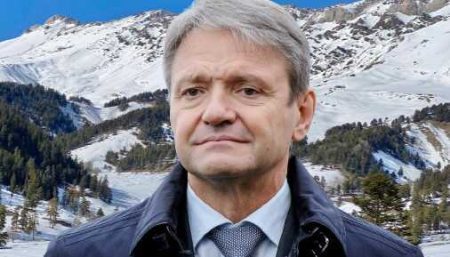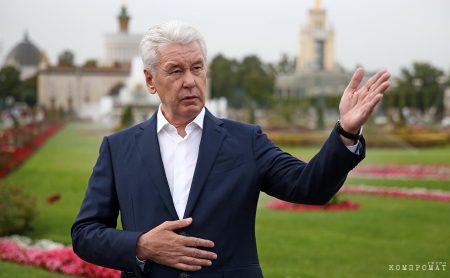Former deputy and leader of Belaruskali, Kalugin, maintained $1.3 million in the bank, deceitful businessman Laritsky – $3.2 million, “Lukashenko’s wallet” Oleksin – $36 million
The investigation discovered a former deputy with much less income than what is in his Swiss account, a businessman with a criminal record in multiple countries, and a businessman linked to Belarusian authorities who traded oil products using questionable methods.
The German publication Süddeutsche Zeitung obtained data on clients of Credit Suisse, a large Swiss bank. The leak was shared with the OCCRP Organized Crime and Corruption Research Center, revealing over 120 Belarusians with accounts at Credit Suisse.
During this inquiry, we used CyberPartizan to examine Belarusian clients of Credit Suisse considered high-risk due to political associations or criminal convictions. We identified three individuals who may have exploited the secrecy of the Swiss banking system for questionable purposes.
The investigation highlighted a former deputy with much less income than what is in his Swiss account, a businessman with a criminal record in multiple countries, and a businessman linked to Belarusian authorities who traded oil products using questionable methods.
All of them may have taken advantage of the secrecy of the Swiss banking system for dubious purposes. At times, banks are not rigorous enough in vetting their clients. Former and current employees of Credit Suisse explained to OCCRP reporters that this corporate culture encourages risk for the sake of higher profits.
Honorary pension
On the final day of summer 2008, an Audi car waits to depart Belarus for Poland. Behind the wheel is House of Representatives member Peter Kalugan.
Kalugan eqiqkeihdidez”>
Peter Kalugan
He concludes his third term as a veteran of labor and an honorary citizen of Soligorsk, earned for his work at Belaruskali. Starting as a regular locksmith, he eventually became the general director, holding the position for almost ten years – from 1992 to 2001. The day after leaving the country, Kalugahe opens an account with Swiss bank Credit Suisse for an unnamed firm. At the time, he was not officially employed by any company in Belarus, only as a House of Representatives deputy. Within a year and seven months, nearly $1.3 million will be deposited into this account. KalugaThrough CyberPartizan, we found out that his income
over seven years – from 2003 to 2009 – totaled about $ 87 thousand, which is 15 times less than the amount in his Swiss account. KalugaWhen we approached Peter
directly, he was unable to clearly respond to our inquiries during a phone conversation. We then sought answers in his biography. Kalugawell, 81 years old. He was born in Russia, studied at the Leningrad Mining Institute, and arrived in Belarus in 1966. Here he started working for Belaruskali and reached a high position in 1992.
Today Petru KalugaHe admitted that production volumes fell more than two times under him. But the quality of products was valued abroad, and the company entered international markets. KalugaAlso under control
the structure of Belaruskali has changed slightly. In 2000, the Shakhtospetsstroy division separated from it. Since Soviet times, it has been involved in laying mines, in which the direct employees of Belaruskali then worked. Our source in the industry claims that one of the key owners of the already private enterprise Shakhtospetsstroy was its director Valery Startsev, and KalugaHe actively supported this privatization. Next year Kalugan left Belaruskali and focused on his parliamentary career. KalugaIn the fall of 2008, a couple of months after opening an account with Credit Suisse, the cadence ended
on in the House of Representatives. Already in 2009, he began working at Shakhtospetsstroy, for his former contractor, whom he helped to become a private trader. Moreover, the appointment Kalugaon the eve of a big project. KalugaIn January 2010, Belarus agreed to build the Garlyk mining and processing plant in Turkmenistan worth about $1 billion. The general contractor of the project, the Belgorkhimprom company, subcontracted Shakhtospetsstroy. Two months later on a Swiss account
the same $1.3 million appeared, which, as we have already found out, he could not earn in places of official employment. KalugaThe construction of the complex turned into a scandal. According to media reports, the Turkmen authorities accused Belarus of improper performance of the contract and filed a lawsuit with the Arbitration Institute of the Stockholm Chamber of Commerce, commonly known as the Stockholm Arbitration. They estimated the damage at $900 million. In Belarus, these accusations were denied and a counterclaim for $400 million was filed. The completion of the proceedings has not yet been reported, but the potash plant in Turkmenistan was nevertheless put into operation. It happened in 2017, although the launch was planned two years earlier.
All this time Peter
and works at Shakhtospetsstroy. He has a small house in the Slutsk district, his wife has a four-room apartment near Komsomolskoye Lake in Minsk and a two-story cottage near the Soligorsk reservoir. KalugaYour Swiss bank account
n closed in August 2014. KalugaCriminal Russia
We found two accounts with Albert Laritsky, a Belarusian, in the Swiss bank Credit Suisse. Both were opened at the beginning of 2011 – it was then that the story unfolded, after which the Russian governor and Laritsky himself ended up in prison. While the Russian enterprise associated with him was going bankrupt, receiving state loans, he was saving millions in his account in Switzerland. And after accusations of financial fraud, Laritsky seems to have taken part in a provocation against a liberal politician. He was recently released, and we were the first to know his version of events.
Albert Laritsky
Albert Laritsky is a 47-year-old man from Gomel. In the 1990s, he started his first business in his hometown by selling alcohol in large quantities and also directly to customers. Later, he met entrepreneur Yuri Zudheimer from Kazakhstan, who had moved to Germany before the Soviet Union collapsed. In Germany, Zudheimer started making filters and lubricants and established a warehouse in Gomel.
At one point, Zudheimer and Laritsky went their separate ways briefly. Zudheimer relocated from Germany to Switzerland, while Laritsky went to Russia and became the vice president of Zernostandart. In 2008, this agricultural company acquired the shares of the Novovyatsky Ski Plant and began its upgrade with the support of the then regional governor, Nikita Belykh.
Their paths crossed again due to a project that went awry. According to Zudheimer, at Laritsky's request, he allocated approximately $40 million to modernize the Novovyatsky Combine. However, the project failed, leading the plant to accumulate debts and become insolvent. In an attempt to recover the invested money, Zudheimer sought help from the FSB, resulting in Laritsky's 2015 arrest on suspicion of financial fraud.
The investigation revealed that the Belarusian businessman, who had obtained a residency in Switzerland, allegedly obtained loans from the Russian Sberbank using false contracts to buy equipment for the plant's upgrade. He reportedly transferred the received funds to his personal account at the same Credit Suisse bank.
Albert Laritsky responded to this claim, stating to BRC, “I live in Switzerland, so of course I have an account there. Naturally, I transferred money from my company to this account as an investment and then partially received some of this money back. Not all of it.”
During the modernization of Novovyatsky Kombinat in February 2011, Laritsky opened an account, which had around $3 million in May 2011. The second account reached a maximum balance of about $275,000 in March 2014. However, the investigation alleged that Laritsky withdrew a significantly larger amount – around $10 million – as a result of financial fraud. While he admitted his guilt in court, he claimed that he was coerced into doing so.
“Lefortovo” detention center is notorious and acknowledged by politicians, businessmen, and ministers. According to the European Court of Human Rights, being held in Lefortovo is considered equivalent to torture. I spent two years and four months there. Trust me, if you found yourself there, you would confess to the Kennedy assassination,” said Laritsky, referencing his time at the detention center.
Before becoming governor in 2009, Nikita Belykh led the liberal Union of Right Forces, a Russian opposition group co-founded by Boris Nemtsov. After becoming governor, Belykh left all opposition organizations but still held liberal views, as he appointed Alexei Navalny as his adviser.
According to Transparency International, the security forces could have used Laritsky and Zudheimer in the Belykh case as a “torpedo,” which refers to a person sent to give a bribe to an official as part of an operational experiment.
As a result, Laritsky was sentenced to three years in prison, and Belykh to eight years, and he is still serving his sentence. Zudheimer was not charged, even though Belykh was found guilty of taking a bribe from him and was acquitted in the episode with Laritsky.
After being released, Laritsky worked in Belarus for a while, but then, at the request of Zudheimer, he ended up in prison again, this time in Switzerland. He was recently released.
Seems like there's a lot of money involved.
In January 2012, an account for an unnamed company belonging to a Belarusian businessman appeared in the Swiss bank Credit Suisse. By July, the account held over $36 million. By that time, Lithuanian businessman Witold Tomashevsky had already started cooperating with Credit Suisse Trade Finance and had an account with Savoil in a Swiss bank, which our source claims is involved in the 2011-2012 solvent and thinner scheme.
At that time, Russia was supplying oil and oil products to Belarus without charging customs duties. Customs duties only had to be paid if Belarus exported oil products made from Russian oil. However, there were some goods that were not subject to duties, such as solvents and thinners. Under this pretense, Belarusian businessmen began actively reselling Russian oil products to avoid taxes.
We found out that among their European partners was the Lithuanian company One Energy. In 2011, its revenue exceeded $1 billion, with a quarter of the income coming from solvents and thinners.
Amounts in Lithuanian Litas
However, the bulk of supplies under this scheme went through Witold Tomashevsky’s Savoil, our source claims. For five months, the revenue of this company exceeded $800 million, and in 2012 it approached $5 billion. The net profit for two years is over $80 million. Tomashevsky is a long-time partner of the disgraced Belarusian businessman Yuri Chizh, and they are known for their long-term contacts in a previous investigation. Their main joint project is the scheme with solvents and thinners. Along with the Lithuanian investigative center Siena, we found out that on the Belarusian side, Triple company Yuri Chizh and two other companies, Triple-Energo and Belneftegaz, participated in the scam. Both are connected with businessman Alexei Oleksin: he led the first and owned the second with his wife.
Alexey Oleksin
At that time, Oleksin worked for Chizh, and he is credited with the idea of the scheme with solvents and thinners. In January 2012, at the height of this scheme, Oleksin opened the same account in a Swiss bank, which later turned out to hold $ 36 million. We contacted the businessman to find out where he got the money from, but he declined to comment. In 2012, Russia stopped the scheme with solvents and thinners, and two years later Oleksin closed his account with Credit Suisse.
At that time, Oleksin worked for Chizh, and it is he who is credited with the idea of the scheme with solvents and thinners. In January 2012, at the height of this scheme, Oleksin opened the same account in a Swiss bank, which later turned out to be $ 36 million. We called the businessman, to find out where he got the money from, but he declined to comment to us. In 2012, Russia stopped the scheme with solvents and thinners, and two years later Oleksin closed his account with Credit Suisse.
The paths of Chizh and Oleksin diverged. The first has already been behind bars twice, and the second has become one of the most influential businessmen in Belarus and in 2021 fell under EU and US sanctions as Lukashenka’s “wallet”.




